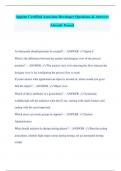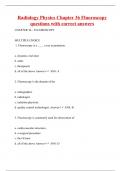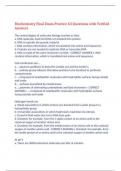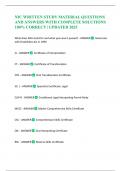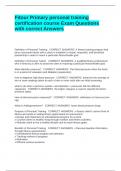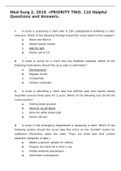Do The Right Thing! Dance Sequence
The film opens with the production company logos with an overlay of the African American anthem
‘Lift Every Voice and Sing’. This song is grounded in the morals of staying hopeful, fighting injustice
and having a knowledge of history. After a short insert of this song, the loud ‘Fight the Power’ plays
with the image of Rosie Perez (Tina) performing an energetic mix of dancing and boxing.
Immediately audiences are aware of the motives that Spike Lee has set out, not only for himself to
address but also for the audience to acknowledge. Lee presents the audience with a battle and a
struggle of life as an African American in the USA. Lee’s use of music is of one that stands to unify
the black community and start a revolution, even if it is only in one neighbourhood. The dance
sequence is the physical battle and the jazz anthem is the almost nostalgic sound of an old battle still
being fought. This is important to African American audiences of the time to unite and fight
injustices as Lee would like to encourage them to do, but also white Americans in the audience get
an insight into the struggle of black communities, which could lead to them re-evaluating their
attitudes and helping the African Americans gain the liberty that they deserve in their homeland. For
international and modern audiences, it is a striking portrayal of the brutality and racism present in
American society but it also, unfortunately, highlights how relevant this message is still today. The
contrast of the two songs could also signify the difference of strategies that civil rights leaders had to
combat these injustices in the decades prior to 1989, Martin Luther King was an advocate for
peaceful protest whilst Malcolm X found violence to be more effectively in sparking progress for civil
rights. ‘Lift Every Voice and Sing’ was often performed in churches and schools and is not a piece to
accompany violence whilst, ‘Fight the Power’ is explicit in its want for physical violence.
The graphics of the opening credits is in an Afro-style font, suggesting a pride in African heritage,
despite not calling it home, Lee has a respect for their history. As the term suggests African
Americans are both African and American, so Lee is also patriotic. This is shown through Tina’s
outfits, which are in the same frame as the Afro-style font. Tina sports the colours; red, blue and
silver, imagining that silver is white, these colours resemble the American flag. They’re proud to be
American and proud of their African heritage, Lee combines these identifications to illustrate his
background.
There are theatrical elements to this sequence, first of all, the use of harsh spotlighting and vibrant
colour adds a very constructed and unreal element that reminds the audience that the film is fiction
and not grounded in realism. The harsh red connotes ideas of anger, danger, heat and warning. The
spotlighting draws attention to Tina’s sharp, vicious movements, that are quite threatening. Direct
address is also used to amplify the threat as Tina holds moments of eye contact with the camera,
and as a result the audience. It’s almost as if Lee is challenging the audience.
Tina’s performance is also quite theatrical and melodramatic. The close ups of her face and facial
expressions exude a powerful and dominant aura. It also accentuates the anger of African Americans
to the authorities, the close ups are quite forceful and invasive, and somewhat uncomfortable for
audiences to witness, which I think was deliberate by Lee to gain engagement. In her violent
movements, the shot of hips reoccurs, possibly to appease the male gaze as it is overly sexualised,
but it could also be a reflection of objectification. In 19 th century America, African Americans were
enslaved and as a consequence viewed as property, this involved objectification and sexualisation in
the sale of slaves. An ingrained attitude that persists, especially in the southern regions, and that Lee
could have been challenging.
The film opens with the production company logos with an overlay of the African American anthem
‘Lift Every Voice and Sing’. This song is grounded in the morals of staying hopeful, fighting injustice
and having a knowledge of history. After a short insert of this song, the loud ‘Fight the Power’ plays
with the image of Rosie Perez (Tina) performing an energetic mix of dancing and boxing.
Immediately audiences are aware of the motives that Spike Lee has set out, not only for himself to
address but also for the audience to acknowledge. Lee presents the audience with a battle and a
struggle of life as an African American in the USA. Lee’s use of music is of one that stands to unify
the black community and start a revolution, even if it is only in one neighbourhood. The dance
sequence is the physical battle and the jazz anthem is the almost nostalgic sound of an old battle still
being fought. This is important to African American audiences of the time to unite and fight
injustices as Lee would like to encourage them to do, but also white Americans in the audience get
an insight into the struggle of black communities, which could lead to them re-evaluating their
attitudes and helping the African Americans gain the liberty that they deserve in their homeland. For
international and modern audiences, it is a striking portrayal of the brutality and racism present in
American society but it also, unfortunately, highlights how relevant this message is still today. The
contrast of the two songs could also signify the difference of strategies that civil rights leaders had to
combat these injustices in the decades prior to 1989, Martin Luther King was an advocate for
peaceful protest whilst Malcolm X found violence to be more effectively in sparking progress for civil
rights. ‘Lift Every Voice and Sing’ was often performed in churches and schools and is not a piece to
accompany violence whilst, ‘Fight the Power’ is explicit in its want for physical violence.
The graphics of the opening credits is in an Afro-style font, suggesting a pride in African heritage,
despite not calling it home, Lee has a respect for their history. As the term suggests African
Americans are both African and American, so Lee is also patriotic. This is shown through Tina’s
outfits, which are in the same frame as the Afro-style font. Tina sports the colours; red, blue and
silver, imagining that silver is white, these colours resemble the American flag. They’re proud to be
American and proud of their African heritage, Lee combines these identifications to illustrate his
background.
There are theatrical elements to this sequence, first of all, the use of harsh spotlighting and vibrant
colour adds a very constructed and unreal element that reminds the audience that the film is fiction
and not grounded in realism. The harsh red connotes ideas of anger, danger, heat and warning. The
spotlighting draws attention to Tina’s sharp, vicious movements, that are quite threatening. Direct
address is also used to amplify the threat as Tina holds moments of eye contact with the camera,
and as a result the audience. It’s almost as if Lee is challenging the audience.
Tina’s performance is also quite theatrical and melodramatic. The close ups of her face and facial
expressions exude a powerful and dominant aura. It also accentuates the anger of African Americans
to the authorities, the close ups are quite forceful and invasive, and somewhat uncomfortable for
audiences to witness, which I think was deliberate by Lee to gain engagement. In her violent
movements, the shot of hips reoccurs, possibly to appease the male gaze as it is overly sexualised,
but it could also be a reflection of objectification. In 19 th century America, African Americans were
enslaved and as a consequence viewed as property, this involved objectification and sexualisation in
the sale of slaves. An ingrained attitude that persists, especially in the southern regions, and that Lee
could have been challenging.


